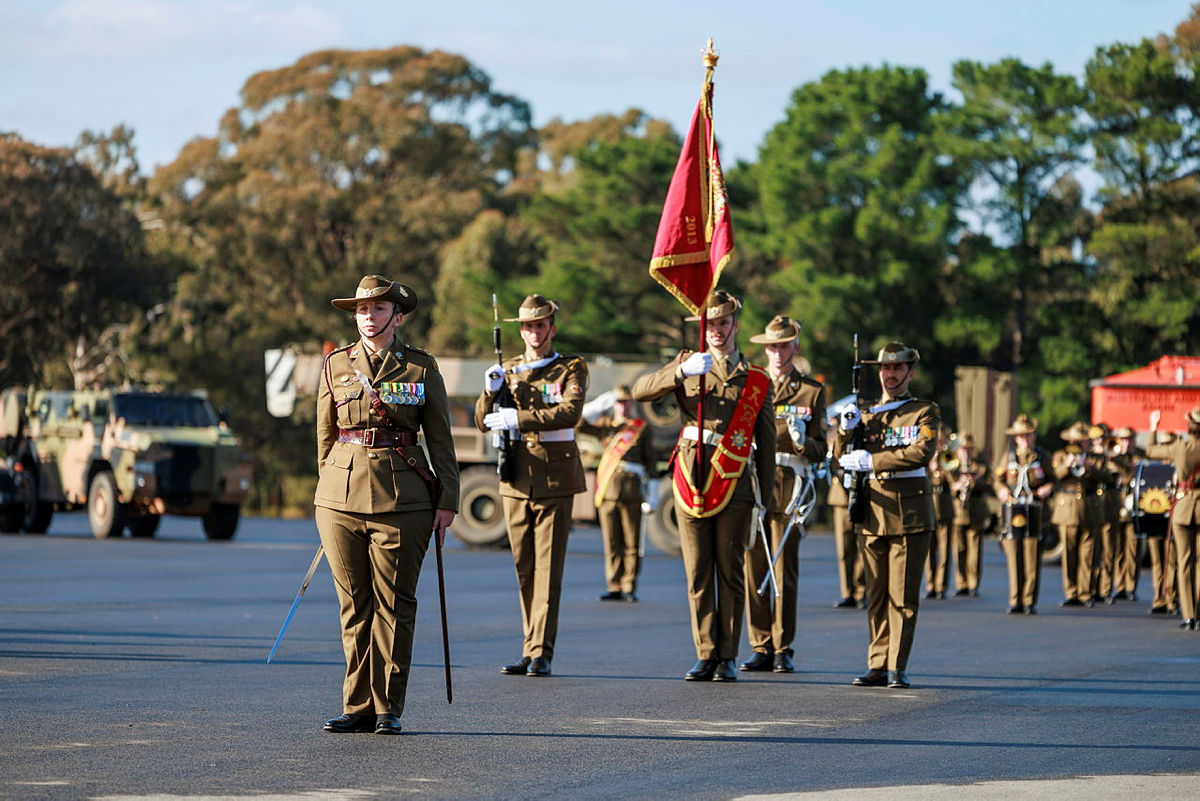Last year, I was asked to speak to a group of APS and civilian women about my leadership experience in Army. Although I am currently a Commanding Officer, the imposter syndrome runs deep – and I wondered what, if anything, I could possibly offer to these women who are leaders in their fields.
It was an interesting exercise in reflection. As I wrote, I was forced to reflect on my family, on where Army was and where it has come to, and lastly to reflect on the value of the kind of leadership that I bring to our organisation.
I joined the Army straight from school. The second youngest of seven children from a chaotic, messy and loving household. Coming from a long line of farmers, teachers and nurses, my decision to join the Army came as a surprise to everyone. Three of my siblings were already at university when I came home from school with some ADFA brochures. So, when Mum heard that they would pay for my degree, you can imagine that she was extremely supportive of me joining.
Although I held a multitude of leadership positions at school, I doubted my ability to lead in Army. Each time I would get on the train to travel to Sydney for interviews I would say to Mum, “I’m not sure this is really me…” and Mum would say “just go, give it a go, if nothing else it will be good job interview experience”. I guess it was, as I am still here 25 years later.
But as they say, the reasons we join, for me, a free degree and vague notions of ‘service’ and ‘helping’, are often different to the reasons we stay.
I stay now because I have a deep sense of pride in my team and what they achieve every day, I have a real sense of purpose and service, and importantly, I have a wonderfully supportive workplace.
This has not always been the case.
Over the past 25 years I have seen and experienced great changes in Army and the way that we value our people. I have been the lucky beneficiary of trail blazers who went before me and demanded changes in policy and attitudes. I am truly standing on the shoulders of giants.
In my time there has been a growing realisation that people are truly our most precious capability and that in order to succeed in war, Army needs people with different perspectives, skills, and life experiences. It is this Army that has supported me through the births of my four children and who recognises and values the unique perspectives and talents that I have gained during each of my four years on maternity leave.
I used to resile from these gifts and traits that I bring as a woman. I loved being, as Marija Jovanovich termed it, “a dude with hair”. In training, I preferred to be the only girl in the section so I would either not be dragged down by a poor performing woman or showed up by the star female. As a young lieutenant I could drink pints with all the boys. I truly believed that in order to be successful I needed to an “AB” or ‘Army Bitch’.
But experience now tells me that I don’t need to ape the traits of a man to be a successful leader. The traits of compassion, empathy, consistency, fairness and humour are not only an integral part of who I am, they are also essential to leading any effective team.
I understand now that perhaps my willingness to collaborate, cooperate and ‘play nicely with others’ is actually my competitive advantage.
This realisation has been a liberating!
One of the key things that has helped me to understand this was working with an exceptional boss who actively mentored and challenged me and secondly, participating in a ‘Strengths Deployment Inventory‘ workshop. This workshop helped me to understand how I tick and, even more importantly to help my team understand what motivates and drives me. It has been a great tool to unlock my authentic self and to understand the areas where I need to work on – those natural blind spots we all have.
I am incredibly lucky to get to utilise this new-found enlightenment in my current job. I truly get so much joy and satisfaction of seeing them succeed, progress and develop.
My call to action to you is to consider the unique perspectives and ideas that you bring to your team and to ask yourself if you are recognising and enabling your people to be their genuine selves?

